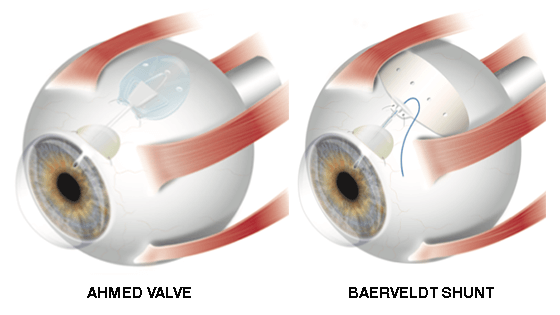Dry eye disease, also known as dry eye syndrome or keratoconjunctivitis sicca, is a common eye condition that affects millions of people worldwide. It occurs when your eyes don't produce enough tears or when the tears that are produced evaporate too quickly. In this article, we will explore the causes, symptoms, and treatment options for dry eye disease in simple words.
What Causes Dry Eye Disease?
Dry eye disease can result from various factors, and it often occurs due to a combination of these factors. Some of the primary causes include:
Aging: As we get older, our bodies produce fewer tears, which can lead to dry eyes. This is especially common in individuals over the age of 50.
Environmental Factors: Dry and windy conditions, as well as exposure to smoke and air conditioning, can increase the evaporation of tears and contribute to dry eye symptoms.
Medical Conditions: Certain medical conditions like diabetes, rheumatoid arthritis, and thyroid disorders can affect tear production and quality.
Medications: Some medications, including antihistamines, decongestants, and antidepressants, can reduce tear production as a side effect.
Screen Time: Extended periods of screen time, whether on computers, smartphones, or TVs, can decrease blink rate and lead to dry eyes.
Contact Lenses: Wearing contact lenses, especially for an extended duration, can contribute to dryness and discomfort in the eyes.
Symptoms of Dry Eye Disease
Dry eye disease can cause a range of symptoms, which may vary in severity from person to person. Common symptoms include:
Dryness: The most obvious symptom is a dry, gritty, or scratchy sensation in the eyes.
Redness: Dry eyes can appear bloodshot due to irritation.
Watery Eyes: Paradoxically, some people with dry eye disease may experience excessive tearing as the eyes try to compensate for dryness.
Sensitivity to Light: Light sensitivity or photophobia can make it uncomfortable to be in bright environments.
Blurry Vision: Dry eyes can cause intermittent or persistent blurriness.
Eye Fatigue: You may experience eye fatigue, especially during activities that require prolonged focus, like reading or using a computer.
Burning Sensation: Many people with dry eyes report a burning or stinging sensation.
Diagnosing Dry Eye Disease
If you suspect you have dry eye disease, it's essential to see an eye specialist or optometrist for a proper diagnosis. They will perform various tests to assess your tear production and the quality of your tears. These tests may include the Schirmer test, tear breakup time, and a comprehensive eye examination.
Treatment Options
The treatment for dry eye disease depends on its severity and underlying causes. Here are some common treatment options:
Artificial Tears: Lubricating eye drops, also known as artificial tears, can provide temporary relief by adding moisture to the eyes.
Prescription Medications: In more severe cases, your doctor may prescribe medications to increase tear production or reduce inflammation.
Lifestyle Changes: Simple changes, like taking regular breaks during screen time, using a humidifier in dry indoor environments, and staying hydrated, can help alleviate symptoms.
Warm Compresses: Applying warm compresses to your closed eyelids can help open oil-producing glands and improve tear quality.
Blink Exercises: Your eye specialist may recommend blink exercises to promote healthy blinking patterns.
Punctal Plugs: In some cases, tiny plugs may be inserted into the tear ducts to block drainage, helping to keep the eyes moist.
Nutritional Supplements: Omega-3 fatty acids, found in fish oil supplements, may help improve the quality of your tears.
Avoidance of Triggering Factors: If specific factors, such as certain medications or environmental conditions, are contributing to your dry eyes, your doctor may suggest avoiding them.
Preventing Dry Eye Disease
While not all cases of dry eye disease can be prevented, you can reduce your risk and alleviate symptoms by following these preventive measures:
Blink Regularly: Make a conscious effort to blink regularly, especially during screen time, to keep your eyes moist.
Take Breaks: When working on a computer or doing close-up tasks, take breaks to rest your eyes.
Protect Your Eyes: Use protective eyewear in windy or dusty conditions and wear sunglasses to shield your eyes from harmful UV rays.
Stay Hydrated: Drink plenty of water to maintain overall hydration, which can benefit your eyes.
Follow a Balanced Diet: A diet rich in omega-3 fatty acids, found in fish, flaxseeds, and walnuts, can support eye health.
For More Info:-






Comments